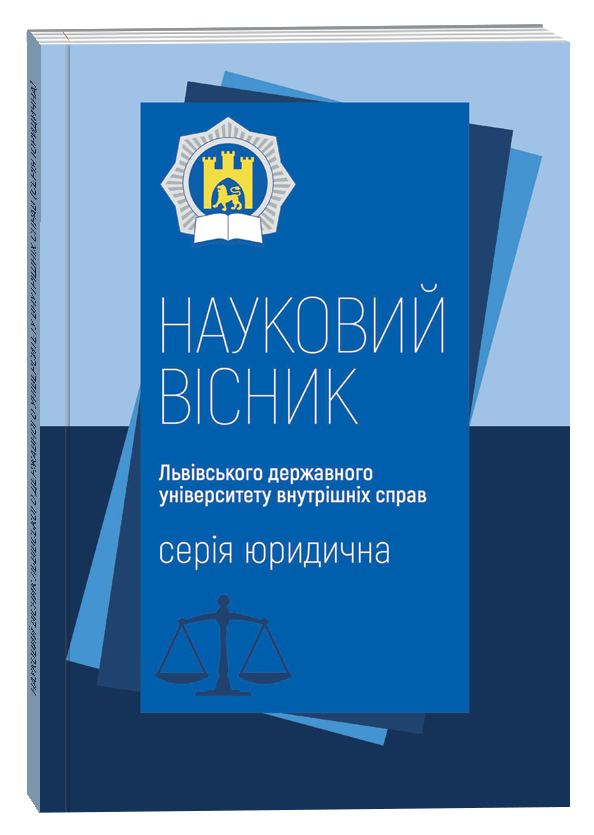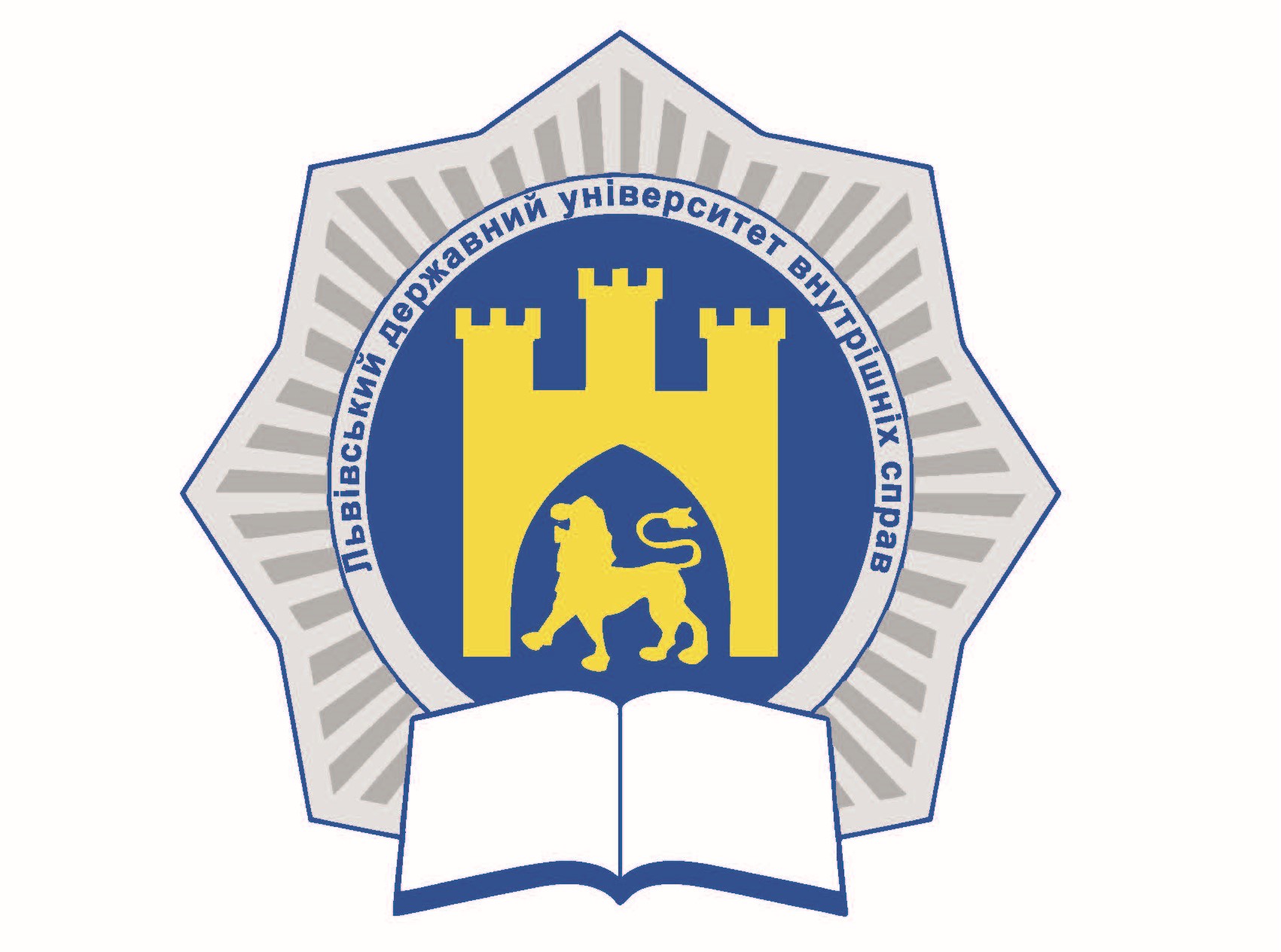КОНЦЕПЦІЯ ЗАСТОСУВАННЯ ГУМОРУ У КРИМІНАЛІСТИЦІ
DOI:
https://doi.org/10.32782/2311-8040/2025-1-11Ключові слова:
криміналістика, гумор, слідчий, допит, тактичний прийом, профілактика злочинності, психологічний контакт, слідчі (розшукові) дії, досудове розслідуванняАнотація
Анотація. Стаття присвячена аналізу концептуальних основ застосування гумору у криміналістиці, його функціонального значення та можливостей використання під час розслідування кримінальних правопорушень. Наводяться наукові підходи до основних функцій гумору. Зазначається про необхідність дослідження феномену гумору у криміналістичній науці як певної концепції. Аналізуються особливості застосування гумору з урахуванням психологічних характеристик особи, а саме видів темпераменту: сангвініка, холерика, меланхоліка, флегматика. Зауважується, що чітко виражений один тип темпераменту спостерігається зрідка. Здебільшого проявляються всі чотири типи, хоча перевагу мають ознаки одного – головного. З’ясування типу темпераменту значно полегшуватиме суб’єкту розслідування та адвокату застосовувати гумор, що надалі легко та ефективно дасть змогу встановити психологічний контакт з особою. Досліджується застосування гумору під час проведення окремих слідчих (розшукових) дій, а також під час профілактики кримінальних правопорушень. Зокрема, зазначається, що під час проведення слідчих (розшукових) дій виникають випадки спірних (суперечливих) позицій сторін (наприклад, слідчого з підозрюваним), що породжує конфліктну ситуацію, яка може проявлятися у вигляді відмови від давання показань та небажанні спілкуватися із суб’єктом розслідування. У таких ситуаціях слід застосовувати гумор, який може сприяти уникненню або певному послабленню конфліктних ситуацій, що можуть виникати під час проведення слідчих (розшукових) дій, а також розрядити напружену атмосферу, яка склалася. Наводяться відповідні тактичні рекомендації з ефективного застосування гумору під час допиту та обшуку (огляду). Зазначається про можливості використання гумору у правоохоронній комунікації з населенням, що буде сприяти формуванню довіри та відкритості до працівників правоохоронних органів, а також формуванню позитивного іміджу органів правопорядку. Робиться висновок про необхідність подальших наукових досліджень у цій сфері та розробки практичних рекомендацій щодо ефективного використання гумору в правоохоронній діяльності.
Посилання
Прокопенко А. О. Сутність понять «концепція», «педагогічна концепція» та «едукація». «Проблеми інженерно-педагогічної освіти», № 72, 2021. С. 60–68. DOI: https://doi.org/10.32820/2074-8922-2021-72-60-68.
Данильян О. Г. Методологія наукових досліджень : підручник. Харків : Право, 2019. 368 с.
Савченко О. В. Гумор. Енциклопедія Сучасної України. URL: https://esu.com.ua/article-24711v.
Sigmund Freud. Wit and its relation to the unconscious. New York. 1916. 388 p.
Носенко Е. Л. Почуття гумору як ознака доброчинності особистості та емоційна сила її характеру : монографія. Київ : Вид-во «Освіта України», 2016. 189 с.
Di Fabio A., Duradoni M. Humor styles as new resources in a primary preventive perspective: reducing resistance to change for negotiation. International Journal of Environmental Research and Public Health. 2020. № 17(7). Art. 2485. DOI: https://doi.org/10.3390/ijerph17072485.
Di Fabio A., Gori A., Svicher A. Relationships between humor styles and the Big Five Personality traits in workers: a network analysis. International Journal of Environmental Research and Public Health. 2023. № 20(2). Art. 1008. DOI: https://doi.org/10.3390/ijerph20021008.
Leist A. K., Müller D. Humor types show different patterns of self-regulation, self-esteem, and wellbeing. Journal of Happiness Studies: An Interdisciplinary Forum on Subjective Well-Being. 2013. № 14(2). Р. 551–569. DOI: https://doi.org/10.1007/s10902-012-9342-6.
Шпортун О. М. Стилі та форми гумору в континуумі «Норма – патологія». Науковий вісник Херсонського державного університету. Серія «Психологічні науки». 2016. Вип. 6. Т. 2. С. 210–214.
Носенко Е. Л. Почуття гумору як ознака доброчинності особистості та емоційна сила її характеру : монографія. Київ : Освіта України, 2016. 189 с.
Zeigler-Hill V., McCabe G. A., Vrabel J. K. The Dark Side of Humor: DSM-5 Pathological Personality Traits and Humor Styles. Europe’s journal of psychology. 2016. No. 2(3). Р. 363–376. DOI: https://doi.org/10.5964/ejop.v12i3.1109.
Кузебна В. В., Гречуха Л.О. Чорний гумор як особливий вид комічного. Збірник наукових праць «Нова філологія». 2022. № 85. С. 157–166. DOI: https://doi.org/10.26661/2414-1135-2022-85-22.
Шапар В. Б. Сучасний тлумачний психологічний словник. Харків : Прапор, 2007. 640 с. URL: https://library.udpu.edu.ua/library_files/427530.pdf.
Приходько Ю. О., Юрченко В. І. Психологічний словник-довідник : навчальний посібник. Київ : Каравела, 2012. 328 с.
Криштанович С. В. Темперамент. Характер. URL: https://repository.ldufk.edu.ua/bitstream/34606048/33545/1/TEMPERAMENT.pdf.
Сергєєнкова О. П., Столярчук О. А., Коханова О. П., Пасєка О. В. Загальна психологія : навчальний посібник. Київ : ЦУЛ, 2012. 296 с.
Куниця О. П., Батечко Д. П. Дослідження типів темпераменту на прикладі студентів-футболістів для формування складу команди. Габітус. 2021. Вип. 25. С. 154–157.
Пілецький В. С. Особливості типів темпераменту та їхня роль у професійній діяльності викладача. Збірник наукових праць: філософія, соціологія, психологія. Івано-Франківськ : Плай ЦІТ Прикарпатського національного університету імені Василя Стефаника, 2010. Вип. 15. URL: http://194.44.152.155/elib/local/pv/1071.pdf.
Неділько Я. В. Використання гумору у встановленні психологічного контакту під час допиту. Криміналістичний вісник. 2024. № 42(2). С. 100–109. DOI: https://doi.org/10.37025/1992-4437/2024-42-2-100.
Юридична психологія : навчально-методичний посібник / Г. В. Мухіна ; за заг. ред. В. М. Бесчастного. Київ : ВД «Дакор», 2019. 236 с.
Коновалова В. О., Шепітько В. Ю. Юридична психологія : підручник. 2-ге вид., перероб. і доп. Харків : Право, 2008. 240 с.
Галаган В. І. Проведення слідчих (розшукових) дій: процесуальні та криміналістичні аспекти. Міжнародний юридичний вісник: актуальні проблеми сучасності (теорія та практика). 2017. Вип. 1(5). С. 73–79.
Неділько Я. В. Застосування гумору як тактичного прийому при проведенні слідчих (розшукових) дій. Криміналістика і судова медицина в умовах сучасних викликів та глобальних загроз : зб. матеріалів міжнар. наук.-практ. конф., присвяч. 125-річчю від дня народження проф. М.М. Бокаріуса та 85-річчю каф. криміналістики Нац. юрид. ун-ту ім. Ярослава Мудрого, м. Харків, 12 листоп. 2024 р. Харків : Право, 2024. С. 259–262.
Жилін А. Е. Актуальні питання реалізації профілактичних заходів працівниками правоохоронних органів при розслідуванні шахрайства у сфері використання банківських електронних платежів. Юридична наука. 2020. № 2. Т. 2. С. 209–215.
Бандурка О. М. Профілактика злочинності. Вісник Південного регіонального центру Національної академії правових наук України. 2014. № 1. С. 115–124.









